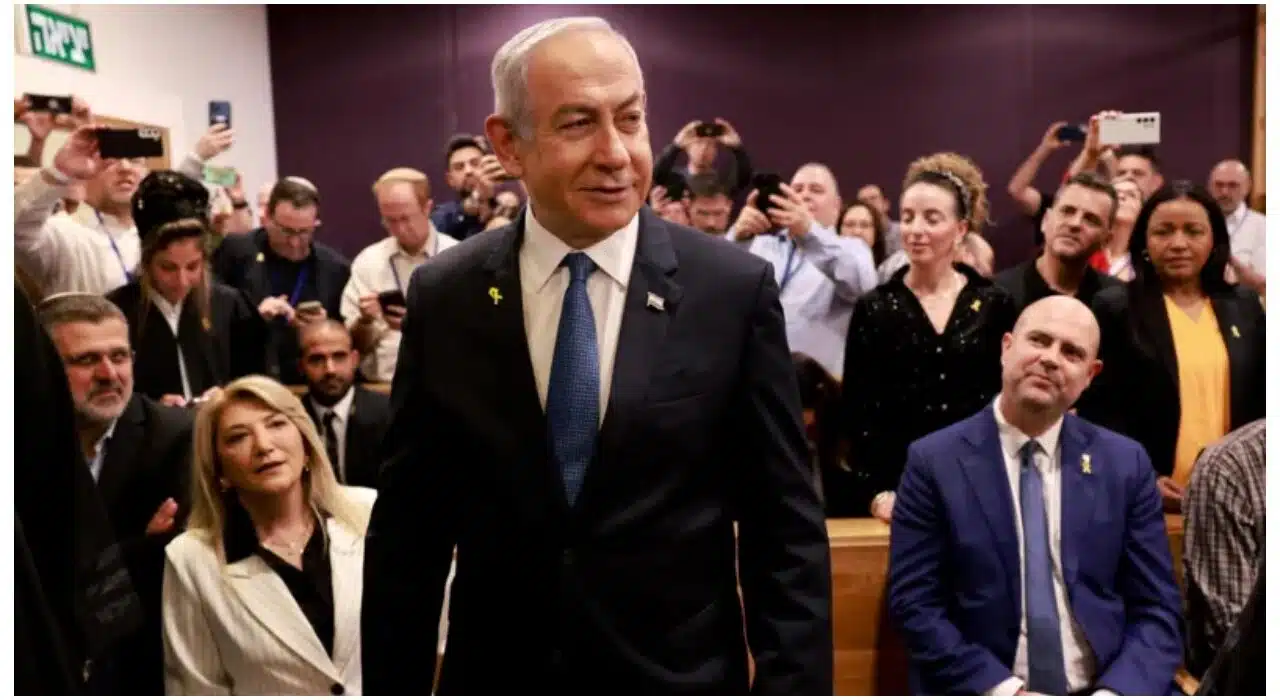Benjamin Netanyahu, Israel’s longest-serving prime minister, has become a first by appearing in court as a sitting leader as the defendant of corruption an d criminal charges. It is a watershed moment, as the state of Israel is experiencing perhaps its most turbulent time yet, on multiple fronts, whether it be the continued skirmishes along Gaza or just recently with operations inside Syria.
Netanyahu’s case, which has been in the courts for a few years now, revolves around allegations of bribery, fraud, and breach of trust. The prosecutors assert that Netanyahu made regulatory concessions to the owners of news outlets in return for favorable reporting. Prosecutors also charge him with accepting expensive gifts, such as cigars and pink champagne, from tycoons, one of whom is a Hollywood film producer.
In his testimony, Netanyahu tried to downplay the significance of the charges, labeling the trial politically motivated. His lawyer, Amit Hadad, contended that the prosecutors were not investigating a crime but targeting Netanyahu as a political figure. The prime minister insisted he was the victim of a political witch-hunt. “I have been waiting for eight years for this moment to tell the truth,” he told the court.
Despite the charges, Netanyahu focused on his political successes, specifically his premiership amid Israel’s ongoing wars. “I am leading the country through a seven-front war, and I think the two can be done in parallel,” he said, focusing more on his successes, particularly in commanding Israel amid its ongoing wars.
Watch the video as Benjamin Netanyahu appears in court on corruption charges
The trial has become the center of Israeli politics: for his critics, the claim is that Netanyahu’s problems in court are an important part of his government’s efforts to curtail judicial power; for his defenders, the trial is a brazenly political effort by his enemies to damage him at a moment of national distress.
As the trial of Netanyahu progresses, he is likely to split his time between the courtroom and Israel’s defense ministry. The legal trial is expected to last for more than a year. In case he is convicted, he can appeal to the Supreme Court, and it will ensure that the implications of the trial on Israeli politics are likely to continue in the foreseeable future.
Also, see: Israel launched airstrikes on Iranian military bases, two soldiers killed
